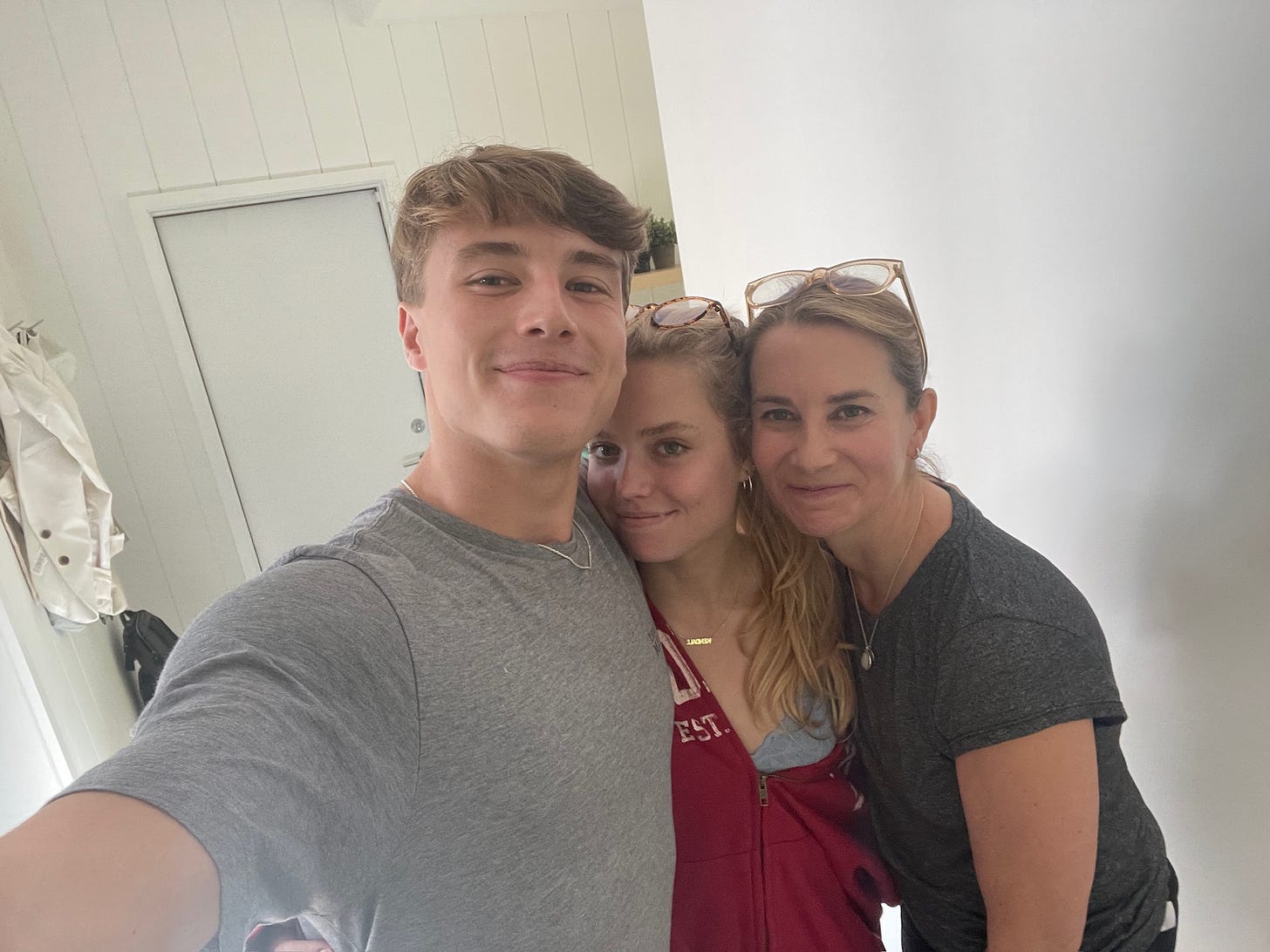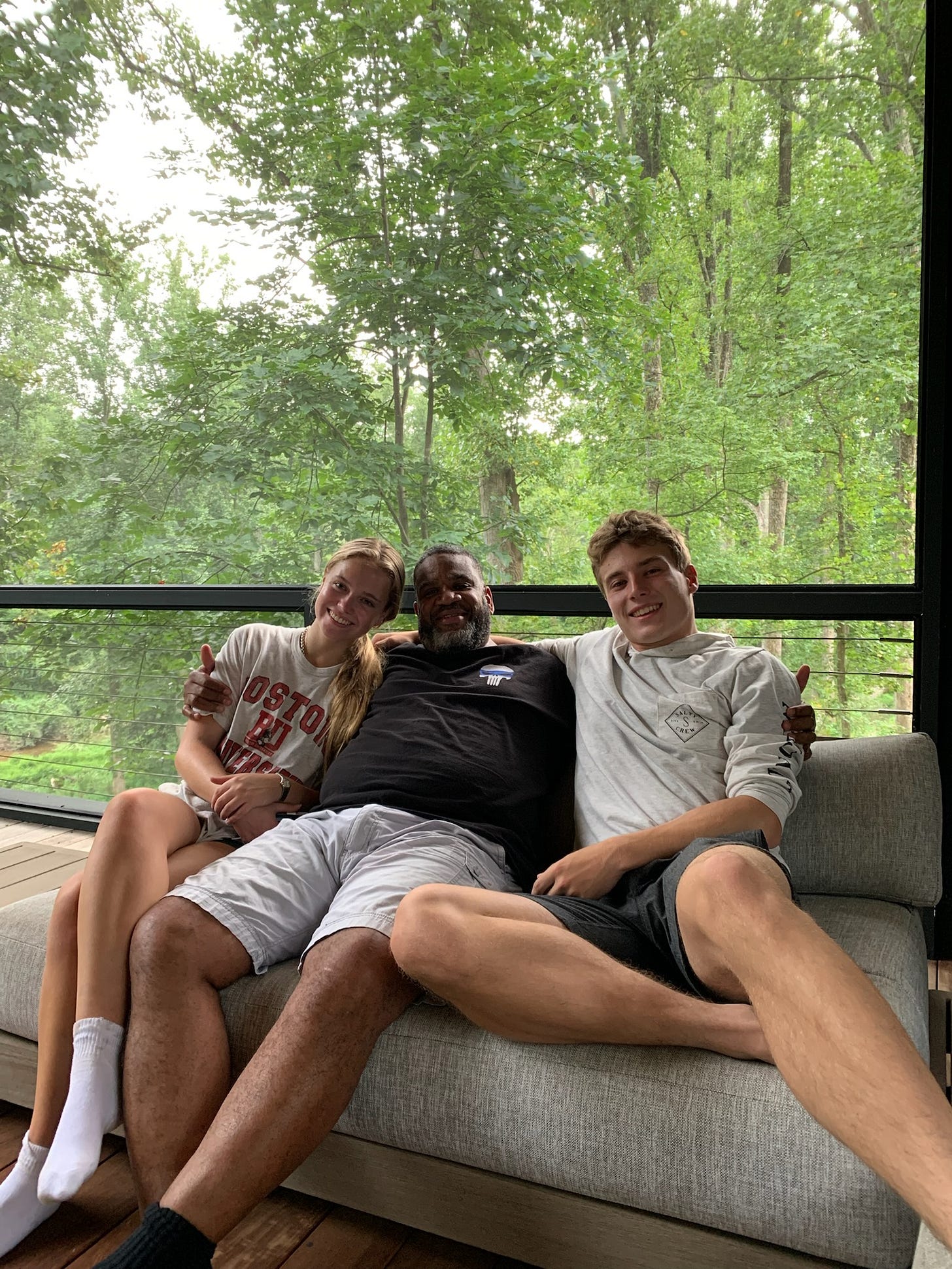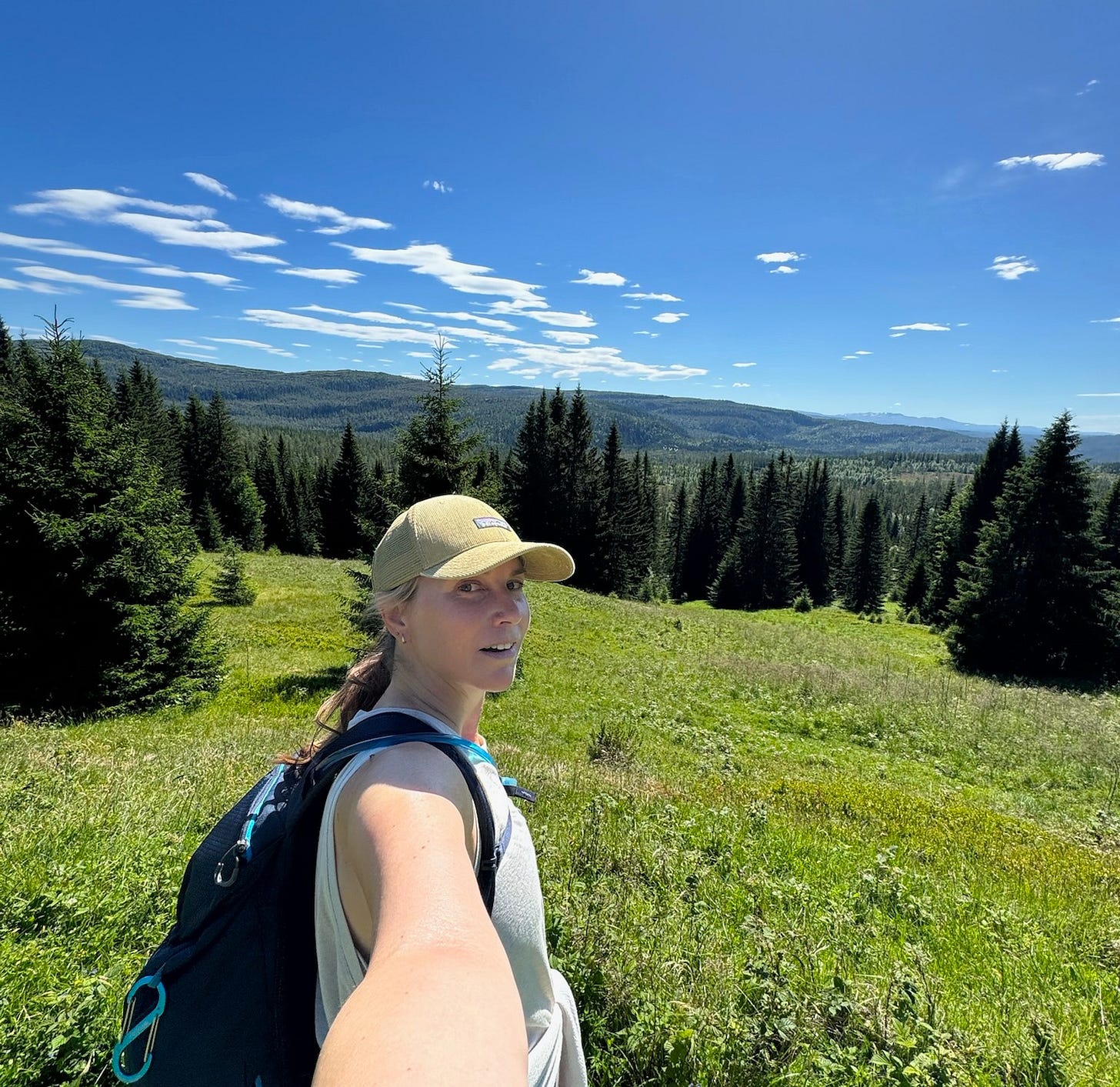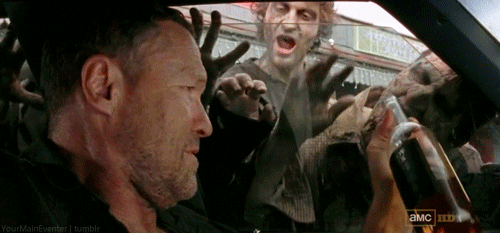#132: Beyond resilience: why we need a new way to talk about hard times.
The case for adaptation over endurance.
The Luminist is a reader-supported publication that illuminates the pain, the pleasure, and the paradox on the path to technicolor living. Subscribe below to receive posts about how loss teaches us to get the most out of life (along with silly gifs) in your inbox every Saturday.
"Please answer this question at your leisure: how do you think you'd do in an apocalypse?"
I was in the midst of an asynchronous text convo with Alice, one ocean and six times zones away, and I swear, my question had a point.
Apocalypse stories might sound like silly hypotheticals, but I believe they use catastrophe to illuminate the human spirit; they strip away everything except our core capacity to survive radical change. Would we crumble? Find a way forward? Thrive despite impossible circumstances?
In other words: just how "resilient" are we?
That word — resilience — has been bothering me lately. It shows up everywhere: in corporate seminars, wellness podcasts, coffee conversations with friends. We've turned it into the gold standard for handling life's hardships, but I'm not sure it's doing us any favors.
When someone remarks, "She's so resilient," what are they really saying? That this person bounced back quickly? That they haven't shown their struggle? That they've kept functioning despite their pain? Our cultural definition has flattened the journey through loss into a single dimension with a single destination — getting over it and moving on as quickly as possible.
I was in the grocery store a few months after Mike died when a neighbor approached. "You're doing so well," she said, squeezing my arm, as if pushing a shopping cart filled with frozen pizzas and chicken nuggets was proof that everything was a-okay. Evidently my puffy eyes and dazed expression hadn't caught her attention. She gave me a giant check mark in the 'resilient' box and moved on to produce.
She thought I was proceeding with normal life. I thought I was keeping my kids from starving... with exclusively microwavable meals.
But in her eyes, there was no difference. I was doing the thing, I was moving forward, I was resilient, and I would be fine.
To be clear, I’m not talking about the Brené Brown understanding of resilience — embracing vulnerability, connection, and emotional awareness. If we all adopted that definition, this post would be very different. But let’s be real, when we colloquially use the term resilience, we generally mean the capacity to pick ourselves up, dust ourselves off, and get on with it without too much fuss.
Our cultural obsession with this version of resilience creates several significant problems.
First, it oversimplifies the messy, non-linear journey of healing. Real recovery rarely follows a clean trajectory. It loops back on itself, progresses in fits and starts, and varies wildly from person to person.
Second, it focuses exclusively on the aftermath while ignoring what was lost. We rush to celebrate recovery without honoring the value and impact of what's gone.
Third, it sets us up for always unhelpful, sometimes harmful comparisons. "That person is handling their grief better than I am" becomes another way we torture ourselves during already difficult times. As if we need another measuring stick to fall short of.
Fourth and finally, it leads us to believe that resilience is something certain people intrinsically have while others don't — a virtue or trait rather than a capacity every human being can access.
I've said it before, and I'm sure I'll say it a zillion times more before I die: experiencing hardship but still going on to live a good life isn't exceptional, it's ordinary.
Research from trauma experts like Dr. George Bonanno consistently shows that the majority of people demonstrate natural recovery after even severe challenges like death, disaster, or violence. This isn't because they possess some rare quality, but because adaptation — learning to first survive and then eventually thrive in our new reality — is our birthright as humans.
I got this word — adaptation — from Dr. Bonanno, and I like it a lot.
Because adaptation is clearly a process, while resilience comes off sounding like a characteristic. And because it's a process, it includes a sense of inevitability: adaptation may take a while, it may get stalled by setbacks, it may need support... but it never stops.
You, me, all of us, have the ability to adapt coded into our DNA.
I watched this dormant capacity kick into gear in my own life as the kids and I emerged from the early days of grief. Initially, we clutched hard to physical things that reminded us of Mike. This included clinging to the house we lived in — the house where Mike died. Plus, "avoid major changes" is Rule #1 in every how-to-grieve book. But after a while, the weight of that house became unbearable. I'd turn a corner expecting to see Mike folding laundry while on a conference call. I'd walk past the gaping maw of his home office and feel the emptiness like a physical blow. The maintenance tasks piled up while my energy drained away.
Eventually the thought clanged through my head, "What am I doing??" So I discussed it with the kids: I'd like to move somewhere new, somewhere smaller, somewhere in the trees. Somewhere that, when you two go off to college, I'll have as my haven. I gave them time to think it through. Kendall was an enthusiastic yes. Connor took his time deciding. But eventually he just said, "Whatever you want, mom." So I moved ahead.
Years later, I'm typing this from our Treehouse, and it's not just my haven, it's all of ours. Watching the Olympics and simultaneously the sunset while splayed out on the couch, bringing friends over to show off our canopy view, licking our wounds in a place that was literally designed to restore us.
This wasn’t pushing through. This wasn’t keeping calm and carrying on. This was throwing out the rule book and adapting.
Dr. Bonanno’s research suggests that our ability to adapt relies on three key elements working together:
First, accurately assessing the situation. Can we see challenges clearly without catastrophizing or minimizing? This helps us respond appropriately rather than wasting energy on phantom threats or being blindsided by unacknowledged dangers.
Second, having multiple ways to respond. Different challenges need different approaches. So building a coping toolbox that would make your granddad proud, full of strategies for all situations, allows us to match our response to what's actually happening.
Third, paying attention to what's working. Sometimes our first attempt at handling a situation falls flat. (Aka staying in our old house.) Can we recognize when an approach isn't helping and try something else? Bonus points if you can do it without self-judgment!
Think of us as seeds, and adaptation as our innate ability to grow.
Every seed naturally contains all the requisite knowledge for how to become a plant. It doesn't need special training or extraordinary qualities. What it needs are the right conditions to flourish. And so no one would blame a seed for not growing in concrete.
From this perspective, asking "Why aren't you resilient enough??" comes across as absurd. Instead, we find ourselves wondering, "What conditions would support your natural capacity to adapt?"
In other words, what you’re doing isn’t working? Ah, that’s not a “you” problem. That’s a method or environment problem. Let’s try something else.
After Mike died, I channeled my anxiety into trying to find the "right" way to grieve. Or at least the fastest. I tried meditation, prayer, a vigorous pilates practice. A few months in, I abandoned them all. Trying to reduce my stress level was causing me more stress. All these attempts to clear my mind resulted in frantically racing thoughts of grocery lists or worse, vivid memories of the ER…
This abandonment could be seen as giving up. But in reality it freed me up to figure out what actually worked.
Eventually, I discovered that walking in nature gave me both movement and mental stimulation that calmed my nervous system. That reading grief memoirs didn't make me sadder, it made me hopeful and filled with ideas to try. That spending time at Middle Eastern military bases with my job gave me the depth of human connection I'd always poo-pooed prior.
The turning point between what some might call "sucking" and "succeeding" at grief came when I threw out that binary. I stopped seeing my earlier attempts as failures and started viewing them as experiments. Each one taught me something — that stillness heightened my anxiety rather than soothing it, that physical exhaustion made me more emotionally vulnerable, that distraction only delayed necessary processing — so I could eventually find what worked.
None of my favorite approaches "cured" my grief — that wasn't the point.
They were simply the unique combination of supports that helped my natural adaptation process unfold in its own way, at its own pace.
With its focus on experimentation and pivoting, adaptation saves us from the absurdity of conventional grief wisdom. Because, no — the same approaches do not work for every person in every situation.
What helps one spouse process their child's health struggles might not help the other. The coping strategy that gets you through a job loss might not work for a break up. Connor’s and Kendall’s go-to coping mechanisms were day and night.
Our bodies and minds are both unique and exceedingly context-sensitive. We respond differently based on the nature of the challenge, our available resources, our past experiences, our current support systems, and countless other factors.
Again, the seed metaphor can help us wrap our heads around this. A seed needs different things in drought versus flood conditions, loamy versus rocky soil. A seedling requires different kinds and quantities of nutrients than a mature tree. There's no universal "right way" to grow, only what works in this specific environment at this specific time.
It’s almost like we humans, and our pesky emotions, are actually a part of nature!
With all that in mind, I think it’s time we radically reframe how we think and talk about getting through hard times:
From asking why someone is struggling to wondering what conditions would help their natural ability to flourish.
From believing recovery is binary — either you've got it or you don't — to recognizing everyone has this capacity but might need different supports to access it.
From comparing recovery timelines to honoring each person's unique journey through difficulty.
From focusing on individual traits to creating structures, strategies, and contexts that help healing organically unfold.
These shifts aren’t just semantic — they change how we approach ourselves and others during life's toughest moments.
A few days later, I got a voice note back from Alice about the apocalypse question.
"My first thought was, I'd be terrible in an apocalypse! I don’t have what it takes. But after thinking about it for a few days, and looking back at the apocalypses I've had, I realized I've consistently surprised myself. I think I'd be great in an apocalypse."
Of course she would.
What this question really reveals isn't someone's special "resilience gene," but their belief in their capacity to adapt.
Those who believe they'd fare well typically trust their ability to learn, to find community, to solve problems creatively. They trust the seed within them to grow, given even half a chance.
So maybe it's time we retired "resilience" from our vocabulary around loss and challenge. Not because Brené Brown's definition isn't great, but because the way it's most often used has become loaded with comparison, judgment, and oversimplification.
Instead, we might talk about:
Adaptation: our inherent ability to adjust to changing conditions, not as a fixed trait but as a living process.
Integration: our capacity to weave painful experiences into our ongoing, ever-changing stories.
Environment: creating conditions where healing can happen naturally, at its own pace.
The wisdom of making it through struggle and emerging on the other side lives in every one of us.
Our task isn't to acquire it, but to clear the path and nurture the soil, allowing it to emerge.
Believing in your capacity,












I really appreciate the distinction made here between adaptation and resilience--too many people still think of grief as a linear process with an end goal of "getting over it." In situations like mine, where the grief is complex (I'm slowly losing my husband of 37 years to early-onset dementia), there is no "getting over it."
Thank you for the distinction between resilience and adaptation. Something I hadn't thought about before but it makes sense.